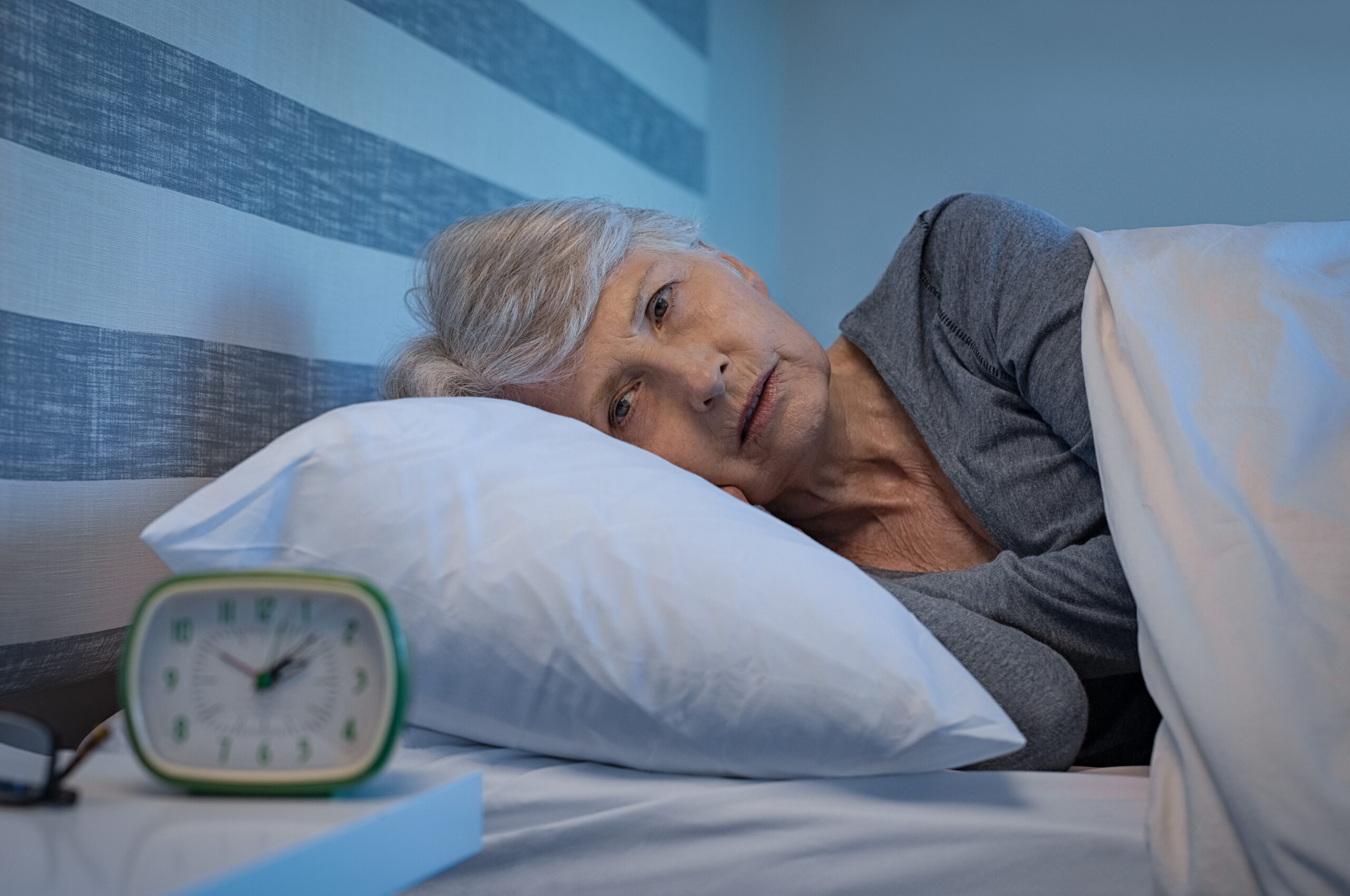
22 Sep Insomnia in Older Adults: Causes, Consequences, and Care Solutions
Sleep is fundamental to overall health, yet, as individuals age, the journey to a night of restful slumber can become fraught with challenges. Insomnia, which is characterized by consistent difficulty in either falling or staying asleep, is particularly prevalent among seniors.
The transition to senior years brings not only physical changes but also emotional and lifestyle shifts, all of which can influence sleep patterns. Factors such as changing health conditions, increased medication usage, and emotional stressors can amplify these sleep-related issues. We’ll delve into the reasons why insomnia is common in older adults, the impact it has on their well-being, and potential care solutions.
Understanding the Root Causes of Insomnia in the Elderly
A multitude of factors can contribute to sleep disturbances in seniors. One major reason is the natural change in sleep architecture that occurs with age. As individuals grow older, they tend to spend more time in the lighter stages of sleep, making it easier to be awakened. This change is a natural part of aging but can result in less restful nights.
Health concerns also play a significant role. Conditions such as arthritis, asthma, chronic pain, and menopause can interrupt sleep. The medications prescribed for these conditions can sometimes further compromise sleep due to their side effects.
Lifestyle choices and daily routines are another contributor. Older adults might have inconsistent sleep routines, may nap more frequently during the day, or consume alcohol or caffeine close to bedtime. Mental and emotional well-being also intersect with sleep quality. Feelings of depression, anxiety, or stress can lead to restless nights; conversely, a lack of sleep can exacerbate these emotional states. Last, sleep-related breathing disorders, such as sleep apnea, become more prevalent with age, leading to interrupted sleep cycles.
The Wide-Ranging Consequences of Insomnia
The ramifications of chronic insomnia in older adults are profound and extend beyond mere fatigue. Cognitively, persistent sleep disturbances can lead to memory challenges, difficulty concentrating, and other cognitive deficits. This decline in mental acuity can affect everyday tasks and reduce overall quality of life.
Emotionally, there’s a strong link between sleep and mood. Insufficient or non-restorative sleep often gives rise to feelings of irritability, depression, and anxiety. Physically, fatigue from insomnia increases the risk of falls—a serious concern for seniors. Moreover, a compromised sleep cycle can weaken the immune system, leaving seniors more susceptible to infections and exacerbating chronic health conditions like diabetes or heart disease.
Navigating the Night: Care Solutions for Better Sleep
While insomnia can be daunting, especially for older adults, there are actionable steps to improve sleep quality. Establishing a consistent sleep routine can have a significant impact. Going to bed and waking up at the same time each day helps regulate the body’s internal clock, setting a natural rhythm that the body begins to recognize and adhere to.
The environment plays a pivotal role in sleep quality. Ensuring a bedroom is optimized for sleep—dark, quiet, and cool—is essential. Consider factors like the type of mattress and pillows, which should support a comfortable sleeping posture. Tools like blackout curtains, earplugs, or white noise machines might be beneficial additions, filtering out external noises and lights, which can be disruptive.
Daily habits also make a difference. The foods we consume, especially in the evening, can influence sleep. Reducing or eliminating caffeine and alcohol, especially in the evening hours, can improve sleep onset and quality. Opt for calming herbal teas like chamomile or valerian root, which can naturally induce sleepiness. While napping can be beneficial, it’s vital to ensure naps are not too long or too late in the day. Engaging in regular physical activity promotes better sleep, but intense activity should be avoided close to bedtime, as it can produce adrenaline that hinders relaxation.
When self-help strategies don’t suffice, seeking medical advice is crucial. Healthcare professionals can offer insights, rule out underlying conditions, and provide tailored recommendations. They may also introduce therapies such as cognitive behavioral therapy for insomnia (CBT-I), which has been effective for many individuals.
At Spokane Care To Stay Home, we’re deeply committed to the well-being of older adults. Our team understands the complexities of sleep in seniors and strives to provide environments and support that foster restful nights. Whether it’s assisting with establishing routines, creating an optimal sleep environment, or providing resources and guidance, we’re here to help. Sleep is a foundation of health. Together, we can help seniors navigate their way to restorative nights and energized days.
In older adults with various illnesses, including Dementia and many post hospitalization illnesses, Care To Stay Home has been successful at reducing insomnia through the following approach: A complex individualized assessment and plan of care. providing training and supervision. LIfestyle change to regain “baseline” for the individual. Providing experienced caregivers that assist in routine, scheduling, assistance with activities of daily living and daily nutrition. Working with healthcare providers to provide a balance of therapies, medial intervention and treatment to regain quality of life.
Call Care To Stay Home today to schedule a FREE in-home assessment of your needs!


